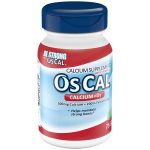Bevispas: Uses, Benefits, Dosage, Side Effects, Interactions

What is Bevispas used for?
Bevispas is a medication that contains the active ingredient Mebeverine. Bevispas is an antispasmodic drug that is primarily used to relieve symptoms associated with irritable bowel syndrome (IBS). It works by relaxing the muscles in the walls of the intestines, which helps to reduce abdominal pain and cramping.
Irritable bowel syndrome is a chronic condition that affects the large intestine and causes symptoms such as abdominal pain, bloating, gas, and changes in bowel movements (diarrhea or constipation). Bevispas, or Mebeverine, is commonly prescribed to alleviate these symptoms and improve the quality of life for individuals with IBS.
How it works
Mebeverine, the active ingredient in Bevispas, is an antispasmodic medication that primarily works by relaxing the smooth muscles in the walls of the gastrointestinal tract, particularly in the intestines. This helps to reduce excessive muscle contractions or spasms, which are often associated with conditions like irritable bowel syndrome (IBS).
The exact mechanism of action of Mebeverine is not fully understood. However, it is believed to act primarily by blocking certain types of calcium channels in the smooth muscle cells of the gastrointestinal tract. Calcium channels are involved in regulating muscle contractions. By blocking these channels, Mebeverine inhibits the entry of calcium into the muscle cells, leading to the relaxation of the smooth muscles and a decrease in spasms.
Mebeverine has a direct effect on the smooth muscles of the intestines without significantly affecting other organs or causing general muscle relaxation. This selective action on the gastrointestinal tract helps to alleviate symptoms such as abdominal pain, cramping, bloating, and changes in bowel movements associated with conditions like IBS.
Can Bevispas be used for stomach cramps?
Yes, Bevispas can be used to relieve stomach cramps. Stomach cramps are a common symptom of IBS, and Bevispas works by relaxing the muscles in the walls of the intestines, which helps to reduce the cramping and associated discomfort. However, it’s important to note that Bevispas should only be used as directed by a healthcare professional, and it’s always best to consult with a doctor or pharmacist before starting any new medication. They can evaluate your specific symptoms and provide appropriate guidance and treatment options.
Can I use Bevispas for bloating?
Yes, Bevispas can be used to help alleviate bloating. Bloating is a common symptom associated with conditions like irritable bowel syndrome (IBS), and Bevispas is often prescribed to relieve the symptoms of IBS, including bloating. By relaxing the muscles in the walls of the intestines, Bevispas can help reduce bloating and the associated discomfort.
However, it’s important to note that while Bevispas can provide relief for some individuals, it may not be effective for everyone.
Bevispas Dosage
The dosage of Bevispas may vary depending on the individual, their medical condition, and the recommendation of their healthcare provider. It’s important to follow the dosage instructions provided by your doctor or pharmacist. The typical recommended dosage for Bevispas is as follows:
1. For adults and children over 12 years old:
• The usual starting dose is one tablet (135 mg) taken orally three times a day (total daily dose of 405 mg).
• Your doctor may adjust the dose based on your response to the medication.
2. For children under 12 years old:
• The safety and effectiveness of Bevispas in children under 12 years old have not been established, so its use is generally not recommended in this age group.
Always take Bevispas as prescribed by your healthcare provider and follow the instructions on the packaging. If you have any doubts or questions regarding the dosage or usage of Bevispas, it’s best to consult with your doctor or pharmacist for personalized advice. They will consider your specific medical history and condition to determine the most appropriate dosage for you.
Bevispas in pregnancy
The use of Bevispas during pregnancy is a matter that should be discussed with a healthcare professional. The safety of Bevispas during pregnancy has not been adequately studied, and there is limited information available regarding its potential risks to the fetus.
While animal studies have not shown any adverse effects on pregnancy or fetal development, there are no well-controlled studies in pregnant women to definitively establish its safety. As a result, the use of Bevispas during pregnancy is generally not recommended unless the potential benefits outweigh the potential risks.
If you are pregnant or planning to become pregnant and are experiencing symptoms that Bevispas may help with, it is essential to consult your healthcare provider. They will evaluate your specific situation, consider the potential risks and benefits, and provide you with the most appropriate treatment options for your condition. They may recommend alternative medications or non-pharmacological approaches to manage your symptoms during pregnancy.
Bevispas Side effect
Bevispas may cause side effects in some individuals, although not everyone experiences them. Common side effects associated with Bevispas can include:
1. Gastrointestinal disturbances: These may include nausea, vomiting, diarrhea, constipation, stomach cramps, and bloating. However, these side effects are generally mild and transient.
2. Headache: Some individuals may experience headaches while taking Bevispas.
3. Dizziness or drowsiness: Bevispas can cause dizziness or drowsiness in some people. It’s important to avoid activities that require mental alertness, such as driving or operating machinery, if you experience these side effects.
4. Allergic reactions: Although rare, allergic reactions to Bevispas can occur. Signs of an allergic reaction may include rash, itching, swelling, severe dizziness, and difficulty breathing. If you experience any of these symptoms, seek immediate medical attention.
5. Other side effects: In rare cases, Bevispas may cause other side effects such as blurred vision, dry mouth, or difficulty passing urine.
It’s important to note that this is not an exhaustive list of side effects, and individual reactions may vary. If you experience any unusual or persistent side effects while taking Bevispas, it’s recommended to consult your healthcare provider for further evaluation and guidance.
Please remember that this information is not a substitute for professional medical advice. It’s always best to consult with your healthcare provider or pharmacist for personalized advice and information regarding the potential side effects of Bevispas or any other medication.
Bevispas Interactions
Bevispas can potentially interact with other medications, and it’s important to inform your healthcare provider about all the medications, supplements, and herbal products you are taking before starting Bevispas. Here are some known interactions:
1. Anticholinergic drugs: Bevispas has anticholinergic effects, so caution should be exercised when taking it concomitantly with other anticholinergic medications, as it may increase the risk of side effects such as dry mouth, blurred vision, urinary retention, and constipation.
2. Antidiarrheal medications: Bevispas may interact with antidiarrheal medications, potentially reducing their effectiveness.
3. Medications that affect gastrointestinal motility: Bevispas can affect gastrointestinal motility, so its concomitant use with medications that have similar effects, such as metoclopramide or domperidone, may lead to decreased effectiveness.
4. Cimetidine: Concomitant use of Bevispas with cimetidine, a medication used to reduce stomach acid, may increase the concentration of Bevispas in the blood. Close monitoring and dose adjustments may be necessary.
5. Warfarin: Bevispas may interact with warfarin, an anticoagulant medication, potentially increasing the risk of bleeding. Regular monitoring of blood clotting parameters is important if these medications are used together.
It’s important to note that this is not an exhaustive list of interactions, and other medications may interact with Bevispas as well. Always inform your healthcare provider about all the medications you are taking to ensure the safe and effective use of Bevispas. They can evaluate potential interactions and make any necessary adjustments to your treatment plan.
Can I take alcohol and Bevispas?
No, alcohol can have various effects on the body, including affecting the gastrointestinal system and potentially causing stomach irritation or exacerbating symptoms like abdominal pain or bloating. Additionally, both alcohol and Bevispas can have sedative effects, so combining them may increase the risk of drowsiness, dizziness, or impaired coordination.
To ensure your safety and to minimize the potential for any adverse effects, it’s best to consult with your healthcare provider or pharmacist regarding the specific recommendations for alcohol consumption while taking Bevispas. They can provide you with personalized advice based on your individual health status and the specific medication regimen you are following.





